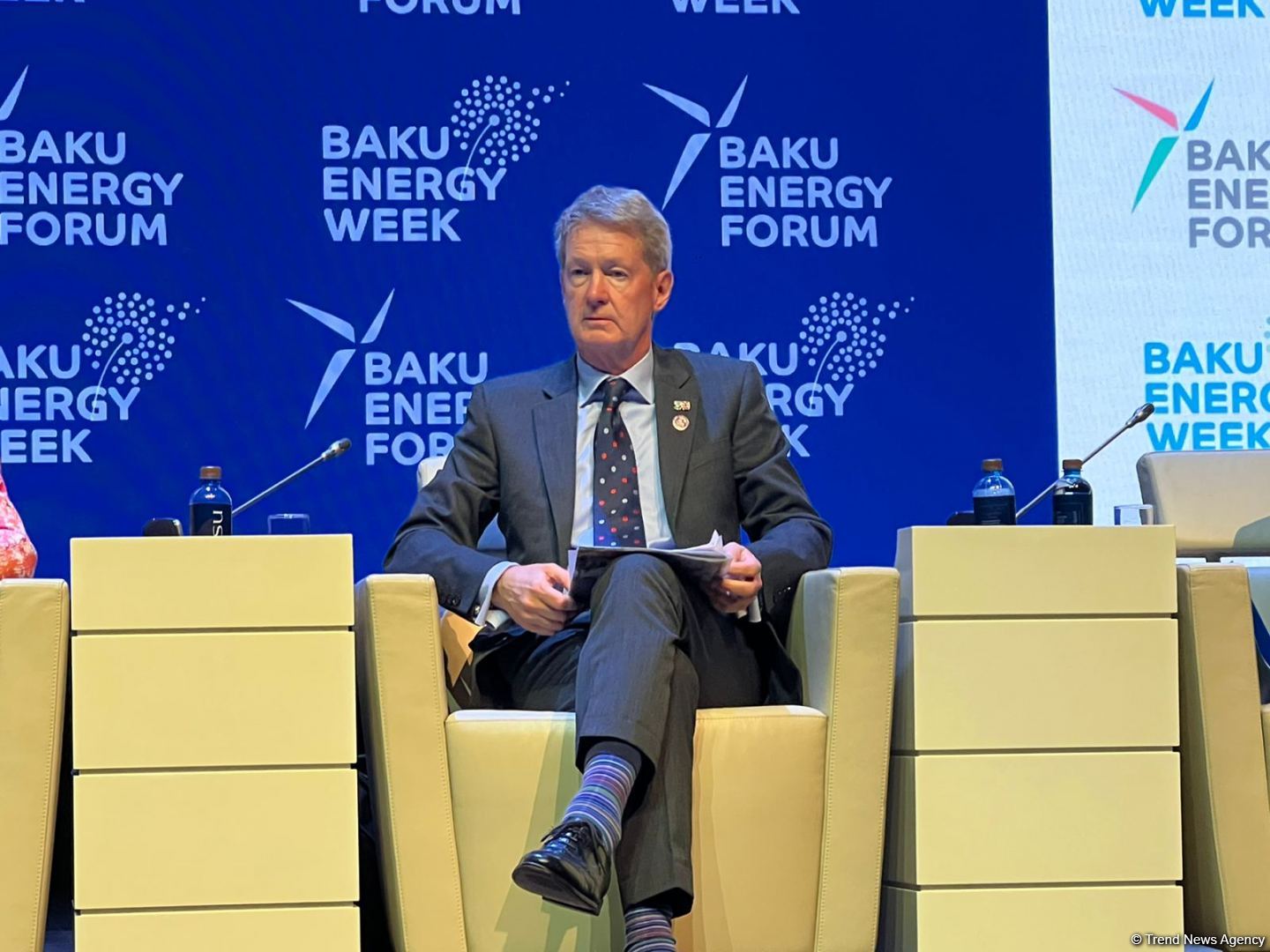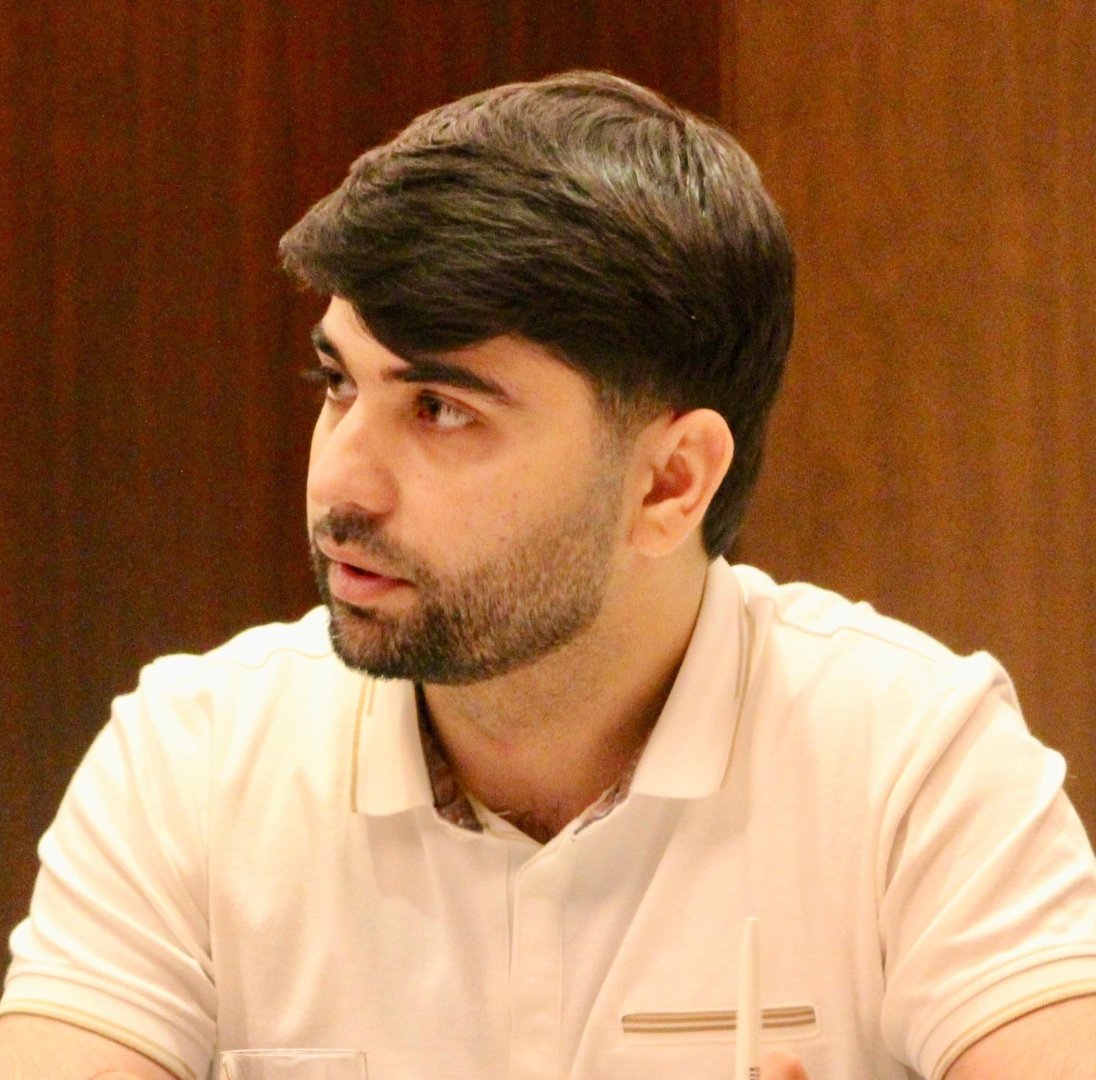BAKU, Azerbaijan, August 5. Azerbaijan acts as a key node in the Trans-Caspian International Transport Route (TITR, or Middle Corridor), James Sharp, the former UK's Ambassador to Azerbaijan, Kazakhstan, and Kyrgyzstan, told Trend in an exclusive interview.
"The regional economic development that the Middle Corridor upgrades will boost is not simply about easier exports of raw materials, but—even more importantly—how to use their position in the Middle Corridor to create diversified, value-added economies. This is where hubs have a particular advantage. One of the lessons from the ancient Silk Road is that the hubs along the route developed into important trading centers. To my mind, the most obvious hub in the Middle Corridor is Alat, the port of Baku. Alat is the key node in the Middle Corridor; all of the proposed routes go through it, and it is the only place in this unique situation. Furthermore, it is situated on a potential North-South Corridor between Russia and Iran. For sure, that raises issues about sanctions at the moment, but over the long term, progress could mean that businesses located in Alat—and, by extension, Azerbaijan—have fantastic access to a wide range of markets. Once again, Azerbaijan would be recreating its role as a crossroads," he said.
As the former ambassador noted, Kazakhstan is the other country through which most routes pass, and here one could imagine hubs developing close to Almaty, and also in Shymkent, where the route from Uzbekistan - and perhaps further to the south - joins the Middle Corridor.
Growing significance of the Middle Corridor
Sharp pointed out that since the outbreak of the war in Ukraine, there has been a significant change in attitudes in Europe towards transporting goods via Russia.
"This has sparked renewed interest in the Middle Corridor, or, more specifically, the Trans-Caspian International Transport Route. Interestingly, it’s not only the war in Ukraine that has increased interest in the Middle Corridor. The events in the Red Sea, where the Houthis have been launching missiles and drones against commercial shipping, have also made governments and companies aware of the need to diversify transport routes. I think there are several reasons why investing in the Middle Corridor makes sense as an additional way of linking Asia and Europe, and it's clear that the region's governments, supported by the EU and international financial institutions, have definite plans to boost its potential. I very much support this. Of course, the Middle Corridor will not replace the other routes, but it will provide an alternative route. Of course, there is still a significant amount of work to be done. As well as the obvious bottleneck caused by the need to switch between rail and maritime transport when crossing the Caspian Sea, a significant amount of work needs to be done due to the fact that the route crosses so many countries," he said.
Required measures for development of the route
The former ambassador believes that both investment and cooperation are required for development of the route.
"There are issues around both what you can call "hard connectivity" and "soft connectivity". Hard connectivity includes things such as the building or upgrade of railway lines, purchase of rolling stock, and port infrastructure. Soft connectivity is more about customs procedures, transit fees, standards and regulations. Broadly speaking, one can say that hard connectivity needs investment, soft connectivity needs cooperation. As regards investment, that is definitely happening, with the EU hosting a Global Gateway meeting earlier this year at which pledges of around 10 billion euros were made. And as regards cooperation, we’re already seeing regional governments and organizations start to tackle the issues raised in the World Bank and EBRD reports. So - while there’s still a long way to go - I’m optimistic that we’ll see a lot of progress," Sharp said.
As James Sharp noted, one really important point to remember is that the benefits of the Middle Corridor are not simply about transporting goods between China and Europe.
"There will be even bigger benefits to the countries of the region thanks to better connectivity between the region and Europe/China, and also between the countries of the region themselves. Better rail and maritime connections allow more trade, and exports from these countries. So this needs to be the main focus - how can the regional countries use the Middle Corridor to support their own economic development?", the former ambassador noted.
Shipping of Kazakh oil through Azerbaijan
Speaking about oil supplies through Azerbaijan, James Sharp pointed out that the truth is that the shipping of oil from Kazakhstan to Azerbaijan across the Caspian is - like the Middle Corridor - a reaction to concerns about relying totally on Russia.
"The CPC pipeline from Kazakhstan to Novorossysk is clearly the most cost-effective and efficient way to export oil westwards, but events over the past couple of years have caused clear concern about the vulnerability that creates. So I can see that - for strategic reasons - Kazakhstan and the oil companies operating there want to develop alternative export routes. So, as with the Middle Corridor, I doubt the trans-Caspian route will replace the CPC pipeline, but will instead provide diversity of export routes. It also helps Azerbaijan by making more use of the BTC pipeline at a time when Azerbaijani oil export volumes are predicted to decrease," he said.
As Sharp noted, again, hard connectivity improvements are needed on both sides of the Caspian, but he believes that the shipping of oil on this route will continue
Green energy trends in Kazakhstan and Azerbaijan
"I’m very pleased to see both countries boosting their renewable energy capacities. To my mind, as oil and gas producers, they have a special responsibility to support green energy. It was clear from a study that the British Embassy funded that Azerbaijan has huge potential for offshore wind energy. And Kazakhstan is such a huge, empty country that there is massive scope for onshore wind and solar power. But there are clearly issues around the distance from the main markets, and how this will affect the economics of renewable energy," he said.
The former ambassador noted that it’s encouraging to see the countries talking to Georgia and EU countries about green electricity lines to Europe.
"Another economic issue in the case of Kazakhstan is the availability of cheap coal, and here, despite the signature of renewables contracts, it’s disappointing to see contracts awarded for new coal-fired power stations, especially since at COP26 hosted by the UK in Glasgow there was an agreement to phase down the use of coal power. As regards British companies, the main example is bp’s construction of a solar power plant in the Jabrayil region of Azerbaijan. This is part of bp’s own commitment to reach net-zero by 2050, a commitment which I hope both Azerbaijan and Kazakhstan will also make at COP29 this year," James Sharp concluded.







